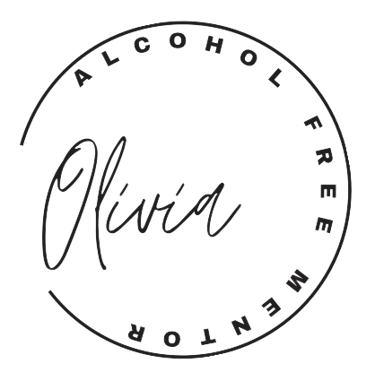New Year, New Magic
For as long as I can remember, the time between Christmas and New Year has always been my favourite time. It has always held some kind of mystical, ethereal magic. It allows me assess the year, both successes and failures and set intentions for the new year ahead. I always return to my core values and assesses whether or not we are in alignment still. It is a great time to set new intentions especially around your relationship with alcohol. Having extensive personal experience abstaining from alcohol and having experience working with people all over the world helping them to remove alcohol, here are some of the barriers that exist as we try and try again to give up the booze. They may be useful as you embark on a journey towards an alcohol-free lifestyle.
Mistrust of self: After years and years of drinking and experiencing many broken promises leads to an inherent mistrust of ourselves. I work with lots of people who are ready to change, but simply don’t trust themselves enough because of too many failed attempts. The more you submerge yourself in an alcohol-free lifestyle, the more trust you build up in yourself and this trust will grow and flourish as you reach new milestones.
Social Pressure from friends and family: It will take time for the people around you to readjust to the new you, so be patient with both yourself and them.
Coping Skills: Lots of people use alcohol to cope with big emotions, external stressors and life events. Developing alternative strategies like deep breathing, exercise, music, mindfulness meditation, journalling, gratitude, laughing, positive self talk and affirmations will help.
Breaking habits: For many people consuming alcohol becomes a habitual behaviour deeply ingrained in daily routines. Breaking these habits and establishing new, healthier routines can be a significant challenge
Triggers: Certain situations, environments, or emotions can act as triggers that prompt the desire to drink. Learning to identify and manage these triggers is essential for reaching your alcohol-free goals.
Stigma: Some people may face judgment or stigma when they decide to give up alcohol, either from others or self-imposed. Overcoming these societal attitudes can be challenging but is important for overall well-being.
Overcoming guilt and shame: those of us who have struggled with alcohol may carry feelings of guilt or shame, I often felt like I was brined in shame. Addressing and working through these emotions is essential for building a healthier mindset. Healing modalities like reiki, really helped me move shame out of my body.
Overcoming these barriers often involves a combination of self-reflection, support from others, developing new coping strategies and in some cases, seeking professional help. Each person's journey is unique and understanding and addressing these challenges can contribute to a successful and sustainable journey into an alcohol-free.
Choosing to go alcohol-free can be a positive and healthy decision for many people. If you've made the decision to go alcohol-free in 2024, here are a few tips to help you along the way.
Set Clear Goals: Clearly define your reasons for going alcohol-free. Whether it's for health, personal growth, or other reasons, having a clear understanding of why you're making this choice can help you stay motivated
Plan Alternatives: Have a variety of non-alcoholic beverages available as alternatives. This could include sparkling water, mocktails, herbal teas, or alcohol-free beer. Having appealing alternatives on hand can make it easier to resist the temptation of alcohol. idrinknolo.ie is a great website for gorge, fancy non-alc alternatives.
If possible, inform your circle of friends: make people aware of your decision. It helps avoid situations where others might unknowingly force you into drinking.
New hobbies: When we take alcohol out, we need to add more activities and distractions into the mix to help us. Some people use alcohol as a way to unwind or socialize. Find alternative activities that bring you joy and relaxation, whether it's exercise, reading, art, or any other hobby. This can help replace the role that alcohol played in your life.
Stay Mindful: Stay mindful of situations that may trigger the desire to drink. If you know that certain events or social situations are challenging, plan ahead and have strategies in place to cope with them without relying on alcohol. Self-awareness is a key tool to utilise when changing an existing, engrained behaviour.
Celebrate Milestones: Acknowledge and celebrate your achievements along the way. Whether it's one week, one month, your first wedding, work night out etc; recognising your progress can help reinforce your motivation and commitment.
Be aware of your ego trying to sabotage your new way of being: if you notice wee cheeky thoughts coming in, trying to get you to have a drink, catch it, argue with it and replace it with a new thought e.g. ‘oh look at all them having a lovely time there drinking their lovely cocktails, poor me’. Reply with ‘eh hello you, you’ve made a decision not to drink based on YEARS of this farcical drinking behaviour’. Then change it to ‘You have lots of examples of people who are successfully and joyfully living their lives alcohol-free and you, my darling, are going to be one of them (hurray!).
Please note that when I speak about giving up alcohol, I am referring to those who drink in the grey area patterns of alcohol consumption. If you feel that you are physically dependant on alcohol, please seek medical advice


